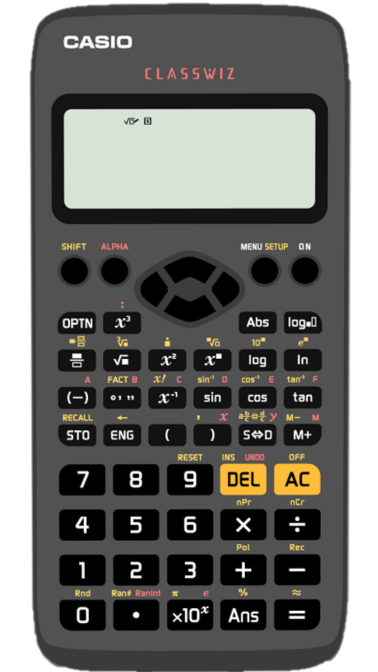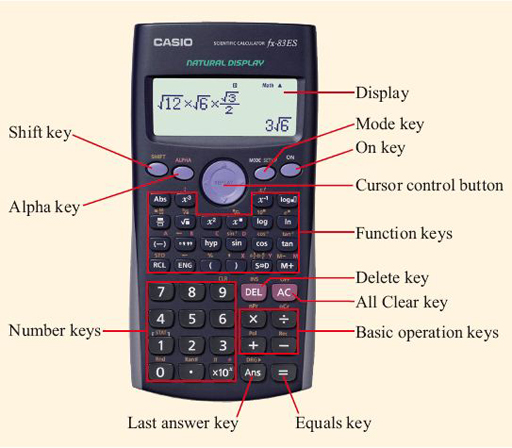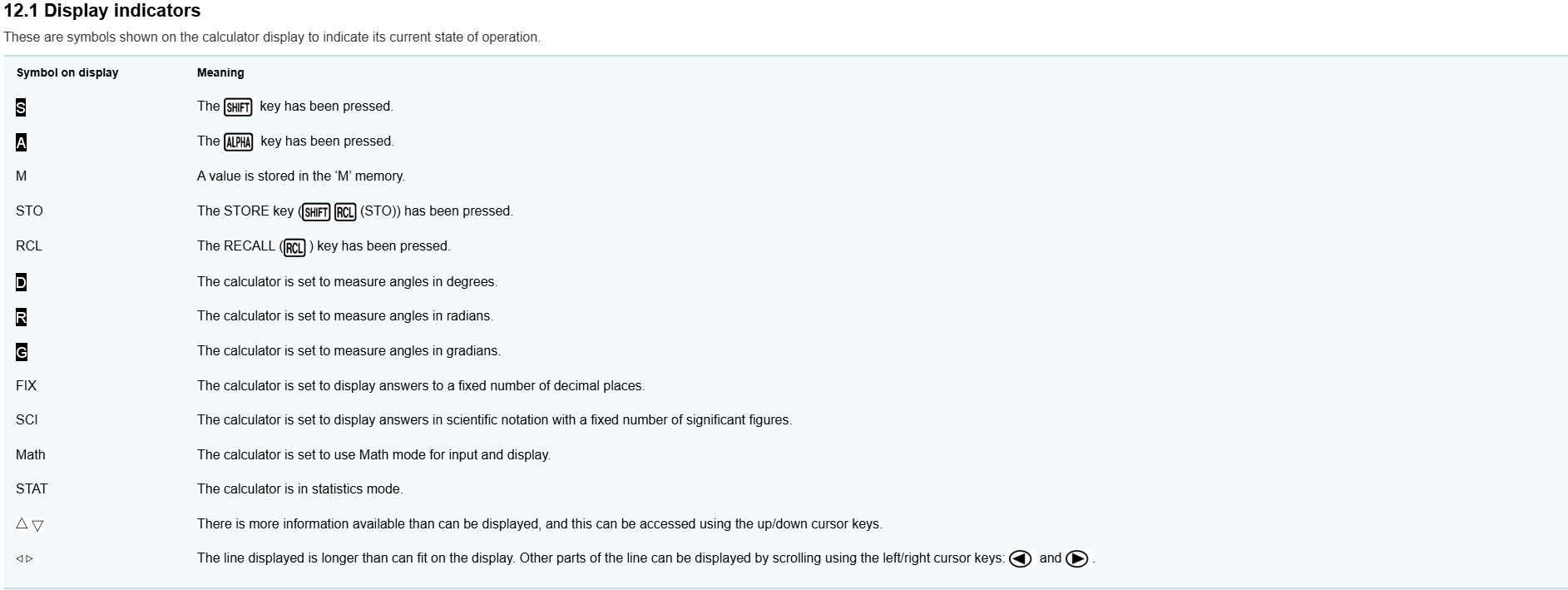CIE IGCSE Mathematics (0580) Using a calculator Study Notes - New Syllabus
CIE IGCSE Mathematics (0580) Using a calculator Study Notes
LEARNING OBJECTIVE
- Using a Calculator Efficiently
Key Concepts:
- Use of Calculator
Using a Calculator Efficiently
Using a Calculator Efficiently
Calculators are powerful tools for accurate and quick computation. However, efficient use requires understanding how and when to round and how to maintain precision during multi-step calculations.

Key Principles:
- Do not round intermediate values: Keep full calculator values until the final step. Rounding too early may cause inaccurate results.
- Use brackets where needed: For compound expressions (fractions, powers, etc.), ensure correct order of operations.
- Use memory functions: Store intermediate results (like ANS or M+ keys) to maintain precision.
- Round only the final answer: When a question asks for rounding (e.g. to 2 decimal places or 3 significant figures), apply this only to the final calculated value.
Example Tips:
- If calculating \( \frac{5.28 \times 7.3}{2.1 + 4.6} \), input the full expression in the calculator using brackets to ensure correct order.
- For a calculation with multiple steps, use the “Ans” key to feed the previous answer into the next step.
- For percentage increases, e.g. increase $640 by 13%, enter:
\( 640 \times (1 + \frac{13}{100}) = 640 \times 1.13 \)
Example:
Evaluate the expression \( \frac{12.48 \times 3.6}{4.8 + 2.2} \) using a calculator. Round your final answer to 2 decimal places.
▶️ Answer/Explanation
Do not round intermediate values. Enter the full expression using brackets:
\( \frac{12.48 \times 3.6}{4.8 + 2.2} = \frac{44.928}{7} \approx 6.4182857\ldots \)
Final Answer: 6.42
Example:
A phone originally costs $960. During a sale, the price is reduced by 15%. Use a calculator to find the sale price. Round your answer to the nearest dollar.
▶️ Answer/Explanation
Calculate the multiplier for a 15% reduction: \( 1 – \frac{15}{100} = 0.85 \)
\( 960 \times 0.85 = 816 \)
Final Answer: $816
Entering Values Appropriately on a Calculator
Entering Values Appropriately on a Calculator

When using a calculator, especially for time or angles, you must convert or enter values correctly:
- Time in Hours: 2 hours 30 minutes = \( 2 + \frac{30}{60} = 2.5 \) hours
- Angles in DMS (Degrees° Minutes’ Seconds’’): Use the D°M’S’’ function if your calculator has it, or convert manually:
\( 2^\circ 30′ = 2 + \frac{30}{60} = 2.5^\circ \)
Example:
A journey takes 2 hours 45 minutes. What is this time in hours, and how should it be entered on a calculator for a speed calculation?
▶️ Answer/Explanation
Convert minutes into a decimal:
\( 2 + \frac{45}{60} = 2.75 \) hours
Final Answer: Enter 2.75 on the calculator.
Example:
Convert the angle \( 4^\circ 20′ \) to decimal degrees.
▶️ Answer/Explanation
\( 4 + \frac{20}{60} = 4 + 0.3333\ldots = 4.33^\circ \)
Answer: \( 4.33^\circ \)
Interpreting Calculator Displays Appropriately
Interpreting Calculator Displays Appropriately

Calculators often display results in decimal form. You must interpret them correctly based on context:
- Money: 4.8 means $4.80 (not $4.08)
- Time (in hours): 3.25 hours = 3 hours and 15 minutes, because \( 0.25 \times 60 = 15 \)
- Time (in degrees): 2.75° = 2° 45′ since \( 0.75 \times 60 = 45 \)
Example:
Your calculator shows the result of a bill as 7.6. What is the correct money interpretation?
▶️ Answer/Explanation
\( 7.6 = 7 \text{ dollars and } 60 \text{ cents} \)
Answer: $7.60
Example:
The calculator shows 2.4 hours. Convert this to hours and minutes.
▶️ Answer/Explanation
Minutes = \( 0.4 \times 60 = 24 \)
Answer: 2 hours and 24 minutes
Example:
If the calculator shows an angle as 6.5°, what is this in degrees and minutes?
▶️ Answer/Explanation
Minutes = \( 0.5 \times 60 = 30 \)
Answer: \( 6^\circ 30′ \)
